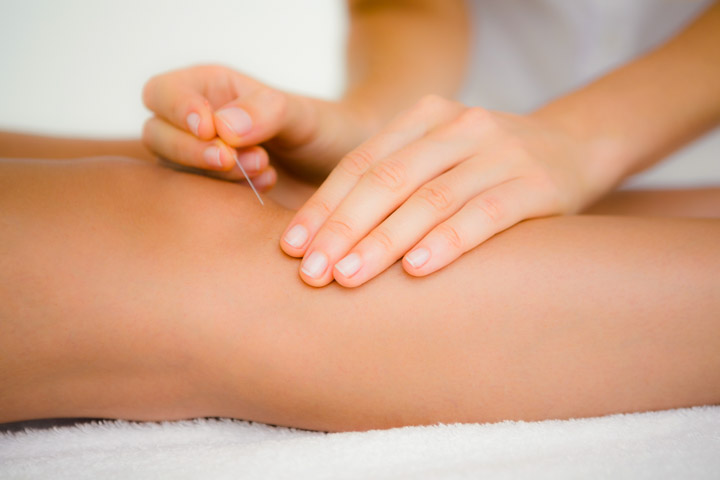
It’s Official: Acupuncture Doctor Approved
March 10, 2017
Satellite eye on Earth: February 2017 – in pictures
March 23, 2017Researchers confirm that acupuncture is more effective than two drugs (ibuprofen and diclofenac) for long-term relief of knee osteoarthritis pain, inflammation, and motor impairment. In one investigation, acupuncture plus herbal medicine outperformed acupuncture plus ibuprofen for pain relief. In another independent investigation, acupuncture outperformed diclofenac for relief of pain, inflammation, and motor impairment due to knee osteoarthritis. Let’s take a look at both investigations.
Acupuncture plus herbs outperforms ibuprofen for the alleviation of knee pain, inflammation, and dysfunction. Guangxi Lingshan County Hospital of Traditional Chinese Medicine researchers investigated the benefits of drugs, electroacupuncture, and herbal medicine for the treatment of knee osteoarthritis. The results of the randomized-controlled clinical trial finds acupuncture plus herbs more effective than the ibuprofen (a nonsteroidal anti-inflammatory drug) plus acupuncture protocol.
All patients in the study suffered from pain and dysfunction due to knee osteoarthritis. Patients receiving a special herbal formula for knee dysfunction plus an acupuncture point prescription administered with electroacupuncture stimulation had an 86.7% total effective rate. Another group of patients received ibuprofen drug therapy plus electroacupuncture, but without any herbal medicine. That group had a 63.3% total effective rate. Both groups had effective relief, but the group receiving electroacupuncture plus herbs outperformed the group receiving electroacupuncture plus ibuprofen by 23.4%.
The researchers protocolized their acupuncture and herbal medicine investigation directly from Traditional Chinese Medicine (TCM) classic prescriptions for knee osteoarthritis. The herbal formula chosen for the study, Du Huo Ji Sheng Tang, has been in use since the Tang Dynasty according to multiple acupuncture continuing education sources. Its uses and composition were first published by Sun Si-Miao in the Bei Ji Qian Jin Yao Fang (Thousands of Golden Prescriptions for Emergencies). The formula has since been an important part of Traditional Chinese Medicine for the treatment of chronic pain. Now, modern research confirms that Du Huo Ji Sheng Tang combined with acupuncture is highly effective for the treatment of knee osteoarthritis.
The acupuncture point prescription was straightforward TCM. Local acupoints combined with body style acupuncture and Ashi acupoints comprised the point formula. The combination of Dubi (ST35) and Neixiyan (MNLE16) were applied. Together, this acupoint combination is termed Xiyan (Eyes of the Knee). The point combination is given its name based on its location in the hollows below the patella on the medial and lateral sides of the patellar ligament. Although the TCM classic work Song of the Jade Dragon indicates that acupoint LV7 (Xiguan) combines well with Xiyan for the treatment of pain and inflammation of the knees with the inability to walk properly, a different set of TCM classic acupoints were chosen for this investigation to supplement administration of Xiyan:
- Liangqiu (ST34)
- Xuehai (SP10)
- Yanglingquan (GB34)
- Heding (MLE27)
- Ashi
A total of 60 patients were treated and evaluated in the study. They were randomly divided into the acupuncture plus herbs treatment group and the acupuncture plus ibuprofen control group, with 30 patients in each group. Both groups received identical electroacupuncture therapy; the treatment group was treated with Du Huo Ji Sheng Tang, while the control group was treated with ibuprofen sustained release capsules.
